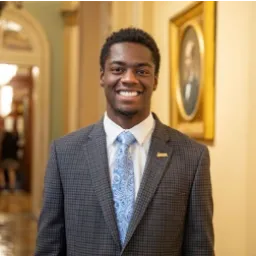Written by Alex Oleson, 2020 ACF All-In Youth Engagement Team Member
The goal for any young person in the foster care system is permanency. Although this looks different in every case there are currently over 122,000 young people whose parental rights have been terminated and they are oftentimes lingering around in care without achieving adoption or legal permanency. In 2019, AFCARS reported that 47% of youth ages 14+ who have a case plan of adoption, age out of foster care. The years of adolescence are important for any teenager and having a lack of permanency can be confusing and make it more difficult to make crucial decisions while transitioning into adulthood. Parents can provide an essential structure to permanency that foster care does not, but the role of permanency extends far past adoption; it lasts forever. As the number of youth in foster care has risen, support for family services for reunification, increasing the diversity of foster parents, and permanency with kin or adoption have not increased at the same levels.
I feel very fortunate to be adopted into the Oleson family where my dreams are supported, I am loved for who I am, and I can make mistakes and learn.
I am a 22-year-old Black man adopted into a multi-racial family including white, Hispanic, Black, and American Indian siblings. My family has taught me the importance of permanency and to respect and love others that don’t look like me. These are things that no money can buy but any foster or resource parent can provide for a young person that they foster or adopt. Throughout my adolescence, the family that adopted me has allowed me to grow into my own individual, which is important for any young person. I was able to develop a network in school with teachers, coaches, and my peers that is needed for any child.
I was adopted by a white family; over 60 percent of foster parents are white, as opposed to a disproportionate amount of young people of color that are in the foster care system. In addition to recruiting a more diverse pool of foster and adoptive parents, it is vital that youth are supported to keep family relationships for cultural reasons, historic reasons, and health-wise reasons. I remember reading books with little Black boys and girls that made me proud to be a young African American. Although these stories were important, as I grew up, I wanted to learn about my own family history. After I turned 18, I wanted to develop a relationship with my biological family for cultural and medical reasons, as well as to develop a relationship that had been severed for nearly 16 years. Many of my other siblings were adopted as older youth and had an existing relationship with their families that my parents supported. So it was not intimidating to pursue; my adoptive mother was supportive of my request and has met them along with me. This experience furthered the trust and respect I had for my adoptive mother as she could have refused to meet them.
Oftentimes going into foster care there is a misconception that a youth starts a new life with a new family and frequently there is a savior mindset that every young person should be adopted, or protected from the family they were born into – whether it’s poverty that prevents parents from providing for a child or other reasons that led to their entry.
When I started my new journey with my adoptive family, that didn’t erase the importance of my biological family connections.
Kin relationships are still be important, and I tell this story to illustrate the extent to which supporting a young person in those relationships after adoption extends. I believe that all young people have a right to a relationship with their biological family, if it is healthy. I see the role of adoptive or resource/foster parents to be supportive of a young person, especially emotionally as they seek out or maintain relationships with bio family. It is my adoptive family who helped to build my self-esteem and confidence in my own ability; they also have worked to normalize keeping and creating crucial connections with kin during the process.
Now is the time for agencies to look at ways that they can prevent youth from aging out of the child welfare system. Enacting strategies young people have identified such as identity training as well as trauma training and looking to funnel resources to parents to unsure that they can provide for their children. I would encourage all adoptive or resource parents to support any young person they adopt in feeling confident in themselves AND be willing to support decisions like interacting with kin relatives. I would also encourage young people to talk to their foster and adoptive families about whether they want to keep those connections with kin. Existing relationships with kin are incredibly important for young people’s emotional stability when being adopted. I would argue that cultivating relationships with kin can also be equally as important.
Being a part of the Oleson family has taught me a lot about genuine connection while embracing both adoptive and biological connections throughout my life. Too often young people lose connections by entering a system due to no fault of their own. I believe that all young people should be able to maintain these crucial connections and normalize the idea of an all-encompassing family. Regardless if it’s through adoption, biological, or kin:
Family is something that is sacred and special.

